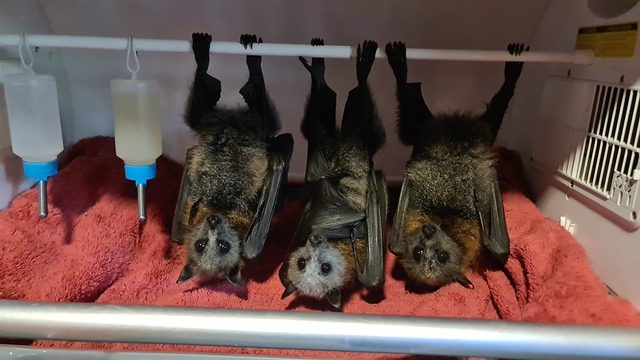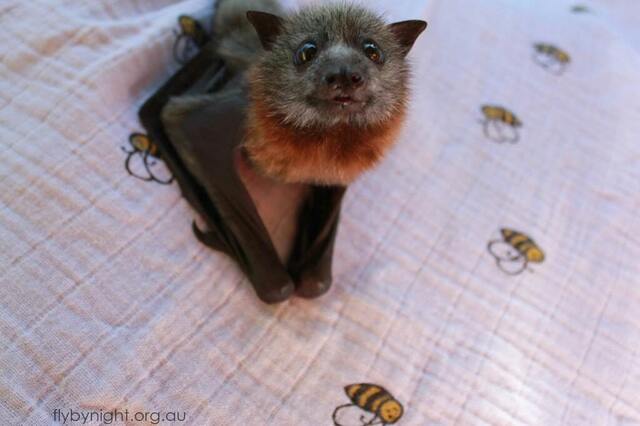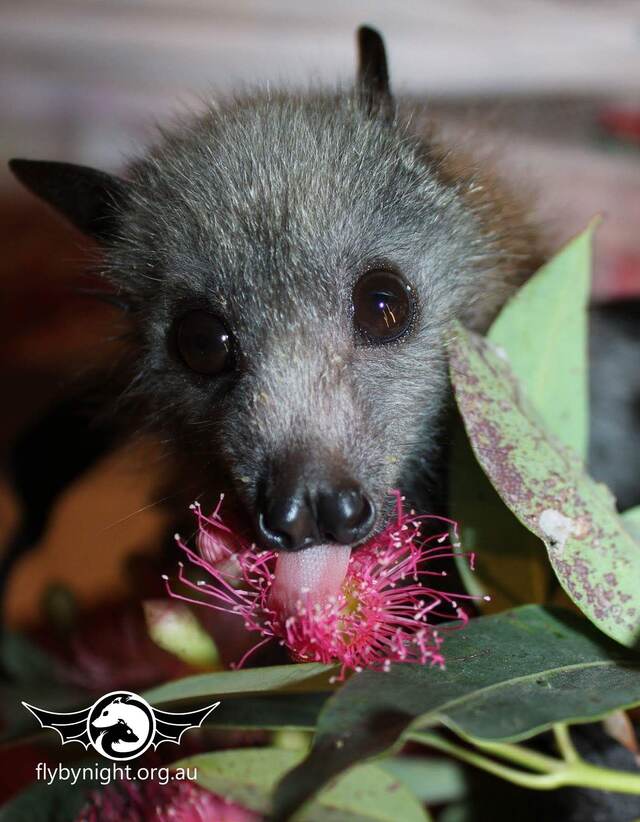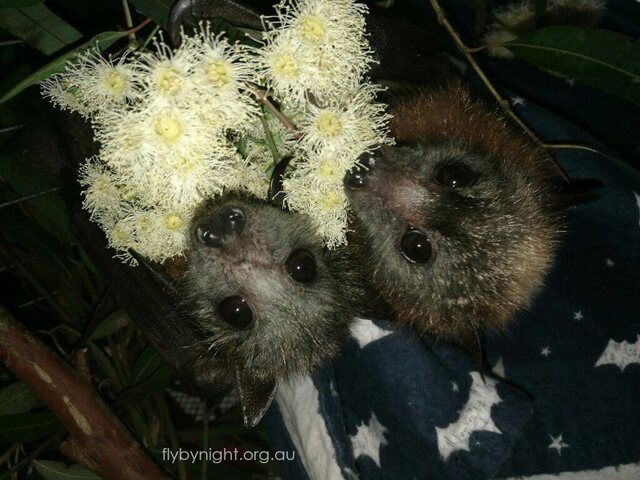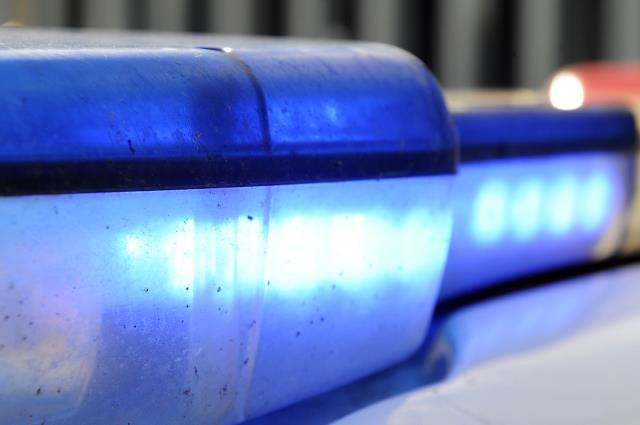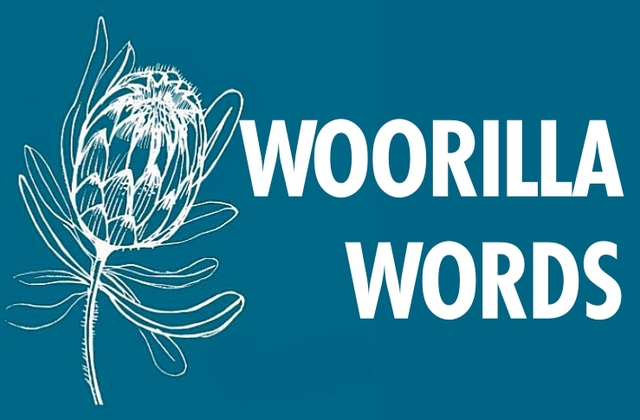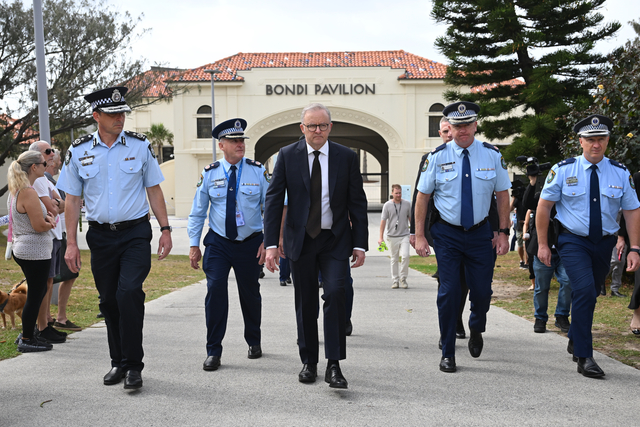Olinda’s dedicated team of passionate volunteers is making a meaningful difference for some of Australia’s most misunderstood native animals. With crucial support $2000 from the People of Post Grant by Australia Post, Fly By Night Bat Clinic can continue its vital work rescuing and rehabilitating vulnerable flying foxes.
For the founder and volunteer at the Fly By Night Bat School project, Tamsyn Hogarth, the support is not just financial, it’s recognition.
“It’s really good, especially with the animals that we look after, they’re often overlooked,” Ms Hogarth said.
“Flying foxes aren’t exactly everyone’s favourite animal. A lot of people don’t understand their importance for the environment. So receiving the grant means a lot. It’s not just the money – it’s the acknowledgment.”
The clinic’s bat school, officially known as the Fly By Night Bat Crèche, helps orphaned and rescued Grey-headed Flying Fox pups grow strong enough to return to the wild.
It’s a careful, step-by-step process. First, they’re hand-raised by trained wildlife carers. Then, they’re brought together in a special creche where they socialise, learn bat behaviours, and start preparing for release.
“They become very trusting of humans during hand-raising,” Ms Hogarth said.
“So bat school is where they learn to be bats again. Once they’ve had that time together, they go through a soft release. That means they’re released into the wild, but they can come back to a feeding station while they adjust.”
It’s a labour of love and a costly one, the grant will help toward fresh fruit, high-protein supplements, and cool room hire to keep the food fresh.
“Each bat needs about 500 grams of fruit every night,” Ms Hogarth said.
“Fruit is expensive, especially when you’re buying it in bulk. Right now, a watermelon might cost $30, and that’s gone in one night for a group of bats. Then there’s the special high-protein powder we use, it’s $120 a bag, and we go through one a week. It adds up really quickly.”
This support helps ease the financial burden that volunteers like Ms Hogarth often carry alone.
“We don’t get government funding. Everything comes out of our own pockets or from donations. So this grant is a huge relief,” she said.
In the past year alone, around 80 bats went through the school and were successfully released.
But that number has been much higher.
“The year before, we had 415 bats in care. That cost us thousands,” Ms Hogarth said.
“We don’t ever want to turn animals away because we can’t afford to help.”
She said the community often doesn’t realise just how vital flying foxes are.
“They’re native, they’re threatened, and they play an absolutely critical role in the environment,” she said.
“They’re our night-time pollinators – like bees, but at night. They fly up to 60 kilometres in a night to spread pollen across eucalyptus forests.”
The grant will also help raise awareness around common dangers to these animals – like unsafe fruit tree netting, barbed wire, and powerlines.
“Just recently, we were called to rescue a baby flying fox still clinging to its deceased mother on a powerline,” Ms Hogarth said.
“It’s heartbreaking, but it’s also preventable. We rely on the public to report things like that. One call can save a life.”
Fly By Night was founded in 2015 after Ms Hogarth saw a gap in care for flying foxes.
“There weren’t enough carers, and not enough awareness. I chose to focus on bats because they desperately needed a voice. They’re misunderstood, and they’re in trouble,” she said.
She’s hopeful that the recognition from the People of Post Grant will help shift perceptions.
“We want people to know they’re not pests. They’re threatened. There used to be millions, and now there’s only about 350,000 left. They all live together in a few places, so it looks like there are heaps – but there aren’t. And once they’re gone, that’s it. We’ll lose the only long-distance pollinator of our forests,” she said.
The grant, she said, is more than just money – it’s motivation.
“It keeps us going. With the cost of living rising and donations falling, it’s been hard. But knowing there are people out there who see the value in what we do – that gives us the energy to keep going. To say yes to the next rescue,” Ms Hogarth said.
For Ms Hogarth and her team of volunteers, it’s simple – “We just want to get these animals back out into the wild, where they belong.”

